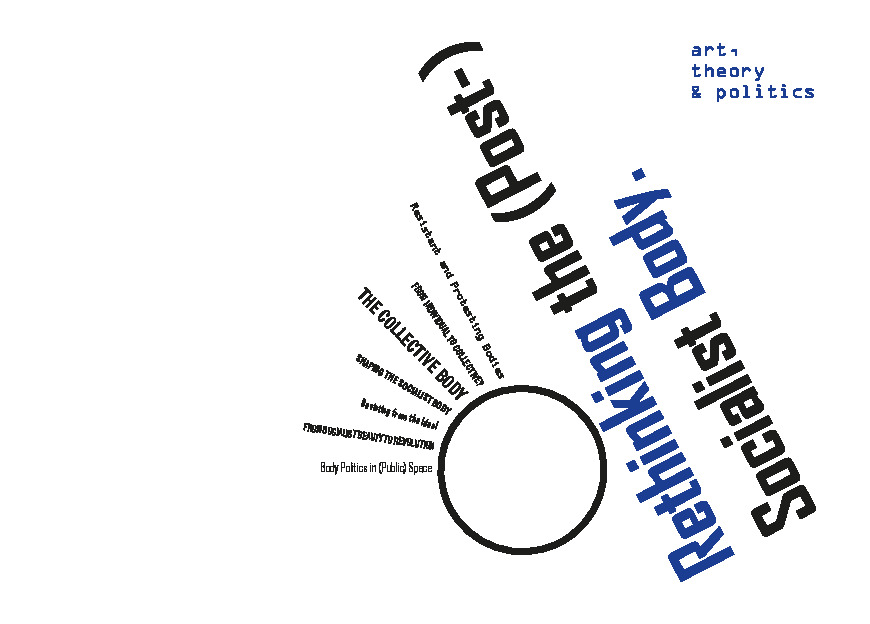Rethinking the (Post-)Socialist Body. Art, Theory & Politics
The importance of body politics is once again undeniable: the idealization or vilification of bodies on ideological grounds, restrictions on abortion rights, and the continued exploitation of migrant bodies and labor are global phenomena. Even though the body has long stood central to cultural, social and political struggles in Eastern Europe, these current phenomena also shed new light on the political meanings of the body and its representations in the former socialist countries of Europe. This is visible today in the return of the heroic body in the media iconography of the Ukrainian war as well as in women’s fight for bodily autonomy across different post-socialist countries.
The question of the visibility or the invisibility of bodies – and the many degrees in between, up to what could be called a hyper-visibility – thus was and remains of central aesthetic, ethical and political concern. And it is not surprising that the body has, in great detail, also been a subject of art, philosophy, and literature.
Given how rich and complex the relationship between the body and visual culture in East-Central Europe is, we need to flesh out a novel reflection of body in its temporal, phenomenological, aesthetic, philosophical and political multiplicity. Thus, this workshop aims to revisit the (post-)socialist body in East-Central European art, discuss its relation to and transformation of well-established artistic and theoretical discourses and international networks as well as shed light on reflections and notions of the body in other disciplines – including philosophy, literature, ethnography and others.
Working through case studies that breach geographic and theoretical boundaries, ranging from the Baltics to Yugoslavia, the conference adds to the on-going conversation around the legacy of socialism by expanding the already accepted conceptual frames and theoretical foundations through which we have hitherto rendered the body legible.
Organized by Oliver Aas, Hana Gründler and Magdalena Nieslony.

at the Kunsthistorisches Institut in Florenz – Max-Planck-Institute, in cooperation with the University of Vienna
28 to 30 September 2023
VENUE: Palazzo Grifoni Budini Gattai, Via dei Servi 51, 50122 Firenze, Italia & online